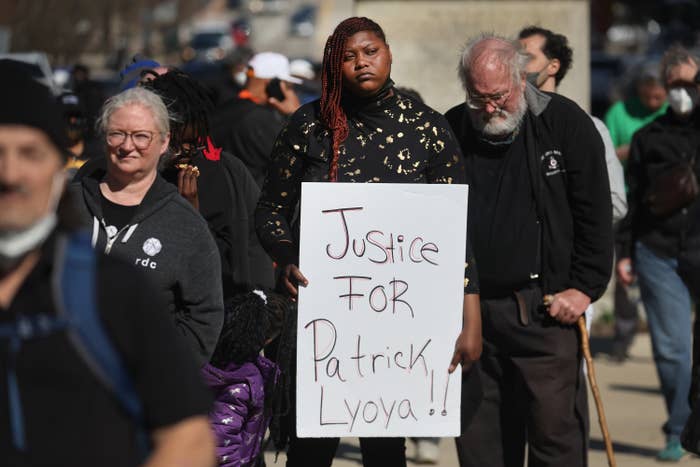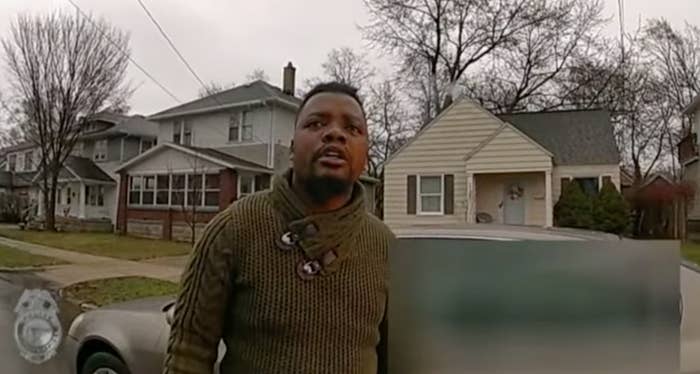
A Michigan police officer who fatally shot a Black man in the back of the head while kneeling on his body has been fired, local officials announced Wednesday.
Grand Rapids police officer Christopher Schurr's termination comes days after prosecutors charged him with second-degree murder for killing 26-year-old Patrick Lyoya. Schurr's firing is effective June 10, the day the police chief formally recommended his termination, Mark Washington, the Grand Rapids city manager, said in a statement.
Washington said he made the decision after Schurr waived his right to a discharge hearing.
"Due to the on-going criminal matter and the potential for civil litigation, I will not be providing any additional comment concerning Mr. Schurr at this time," he said.
Schurr killed Lyoya on the morning of April 4 after pulling him over for what police said was "an improper Michigan registration." Graphic video released by the police department days later showed Schurr struggling to detain a confused Lyoya and moments later firing one round at the back of his head while kneeling on his body.

"Taking a look at everything that I reviewed in this case, I believe there is a sufficient basis to proceed on a single count of second-degree murder, and that charge has been filed with the courts as of today," Kent County Prosecutor Chris Becker told reporters during a June 9 news conference.
Schurr was initially placed on paid leave and stripped of his police powers pending the outcome of the investigation. He was suspended without pay on June 9 after Becker announced his charging decision.
"I hope it sends [the message] that we take these cases seriously," Becker said at the time. "Everybody thinks the prosecutors are essentially an arm or just a branch of police, and we're not. We are our own entity [and] we have a duty to enforce the law, be it on police or the public."
